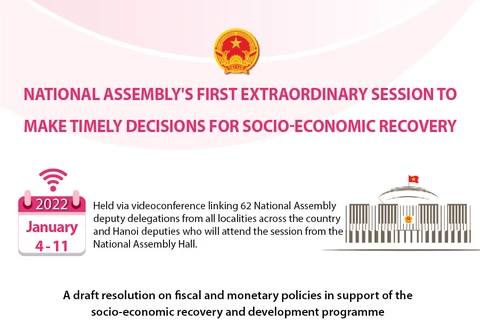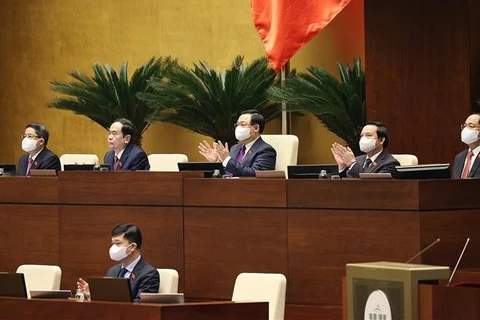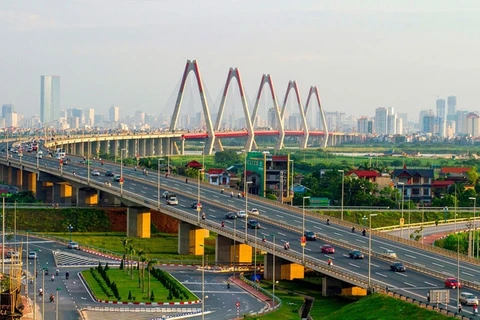Hanoi (VNA) – The fiscal and monetary package to support socio-economic recovery and development is not likely to affect the macroeconomy, especially the index of public debts, public debt payment and inflation, according to Hoang Van Cuong, a National Assembly (NA) deputy of Hanoi.
Speaking on the sidelines of the 15th NA's first extraordinary session on January 6, he said that businesses are eager for the 176 trillion VND (7.58 billion USD) support package.
Cuong said that the combination of fiscal and monetary policies in the package will ensure that it will not affect the macroeconomy. Thanks to the combination, it will be assisted by existing policies, he said.
The major source of the package comes from the credit system through policies of supporting enterprises with low-interest rates, while the amount of new cash injection is not high, he said.
He clarified that the total scale of the package is over 400 trillion VND, but in reality, the value mostly lies in the exemption, reduction and extension of tax payments, and the amount of newly-injected cases is about 176 trillion VND, which is not too large for two years.
Therefore, it should not be considered as pumping cash into the economy, the lawmaker stressed.
The Hanoi representative said that the 176 trillion VND package is to be disbursed over two years and parts of it will be used in several years, which means the real amount is only around 80 trillion VND each year. This is far behind the amount of public investment disbursement every year.
Therefore, the package should concentrate on areas that are hard hit by the pandemic and urgent work serving the pandemic prevention and control, he said, underlining the need to clearly define prioritised sectors for investment.
He said that the package should prioritise regional pandemic prevention centres and the upgrading of medical stations in densely populated areas, as well as sectors such as transportation and tourism.
At the same time, it is necessary to provide housing support to workers in industrial parks and the formation of logistics centres to ensure smooth circulation of goods, he said.
 Legislator Hoang Van Cuong talks to reporters on the sidelines of the NA session (Photo: VietnamPlus)
Legislator Hoang Van Cuong talks to reporters on the sidelines of the NA session (Photo: VietnamPlus) He underscored that it is necessary to provide more support to businesses in interest rates, proposing 4 percent support to sectors that are hard hit by the pandemic, such as tourism or transportation.
The legislator calculated that, of the 176 trillion VND package, if 40 trillion VND is set aside for interest compensation with the interest support of 4 percent, there will be 1 quadrillion VND in the economy absorbed by enterprises, which means a very high pervasiveness.
Businesses' greater access to capital will create favourable conditions for banks to cut operating costs, allowing them to increase deposit interest rates for customers.
Earlier, the Government proposed a support package of 176 trillion VND from the central budget for development investment in modernising grassroots healthcare systems, regional disease control centres, central-level hospitals, and other public investment projects in 2022 and 2023. The Government also proposed a 2 percent borrowing interest rate for enterprises, cooperatives and business households.
The national programme on socio-economic recovery and development covers five key components. These are reopening the economy by enhancing medical capacity (2.6 billion USD); ensuring social welfare and employment (2.31 billion USD); assisting the recovery of enterprises, cooperatives, and business households (4.78 billion USD); developing infrastructure and unlocking social resources (4.95 billion USD); and increasing institutional and admin reform. Moreover, another 434.8 million USD will be mobilised from non-state budget financial funds./.

























